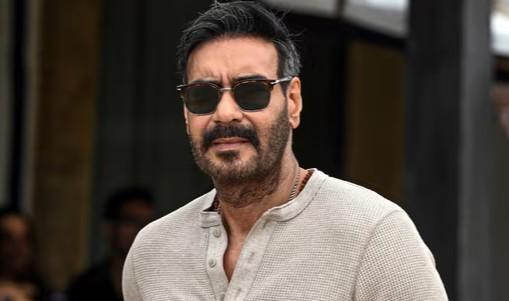
CBFC Cuts Words like ‘Pradhan Mantri’ & ‘Chaiwala’ from Murderbaad
In a surprising move, the Central Board of Film Certification (CBFC) has instructed the makers of the upcoming Bollywood film, ‘Murderbaad’, to edit out words such as ‘pradhan mantri’ and ‘chaiwala’ from a dialogue. The film, directed by Arnab Chatterjee, has received an ‘A’ certification after the cuts were made.
The controversy surrounding the film’s certification has sparked a debate about censorship in the Indian film industry. The CBFC’s decision to cut out words that are commonly used in everyday Indian life has raised questions about the board’s priorities and the impact it may have on the film’s message and tone.
According to reports, the dialogue in question was part of a scene where a character is trying to make a joke about their aspirations. The character says, “Main sabse bada pradhan mantri banke chaiwalon ki dukaan kholega” which translates to “I will become the biggest Prime Minister and open a tea stall”. The intention behind the joke was to poke fun at the idea that anyone can aspire to be something big, regardless of their current circumstances.
However, the CBFC saw it differently. The board apparently felt that the use of the term ‘pradhan mantri’ and ‘chaiwala’ could be perceived as a “jibe” at the Prime Minister and tea vendors, respectively. As a result, the makers of the film were instructed to edit out the words and substitute them with something else.
Arnab Chatterjee, the director of the film, has spoken out about the CBFC’s decision. In an interview, he said, “It was absolutely benign joke, rather aspirational for lower-middle class of our country, and far away from any political stance. I don’t understand why they had to cut out those words. It’s a joke, not a political statement.”
The controversy surrounding ‘Murderbaad’ is not the first time that the CBFC has faced criticism for its censorship decisions. In recent years, the board has been accused of being overly sensitive and heavy-handed in its approach to film certification.
For example, in 2017, the CBFC asked the makers of the film ‘Lipstick Under My Burkha’ to make significant changes to the film’s content before granting it a certificate. The film, which deals with themes of female sexuality and empowerment, was eventually granted an ‘A’ certification after the changes were made.
Similarly, in 2018, the CBFC asked the makers of the film ‘Padmaavat’ to make changes to the film’s title and content before granting it a certificate. The film, which was based on a historical epic poem, was eventually released with an ‘A’ certification after the changes were made.
The CBFC’s decisions have been criticized by many in the film industry, who argue that the board is overstepping its bounds and stifling creativity. The controversy surrounding ‘Murderbaad’ is just the latest example of the CBFC’s heavy-handed approach to film certification.
In conclusion, the CBFC’s decision to cut out words like ‘pradhan mantri’ and ‘chaiwala’ from ‘Murderbaad’ is a clear example of the board’s over-sensitivity and lack of understanding of the film’s message and tone. The controversy surrounding the film’s certification has sparked a debate about censorship in the Indian film industry, and has raised questions about the CBFC’s priorities and the impact it may have on the film’s message and tone.
As the film industry continues to evolve and push boundaries, it is essential that the CBFC takes a more nuanced approach to film certification. Instead of focusing on individual words and phrases, the board should take a holistic view of the film’s content and message. By doing so, the CBFC can help to promote creative freedom and artistic expression in the Indian film industry.




